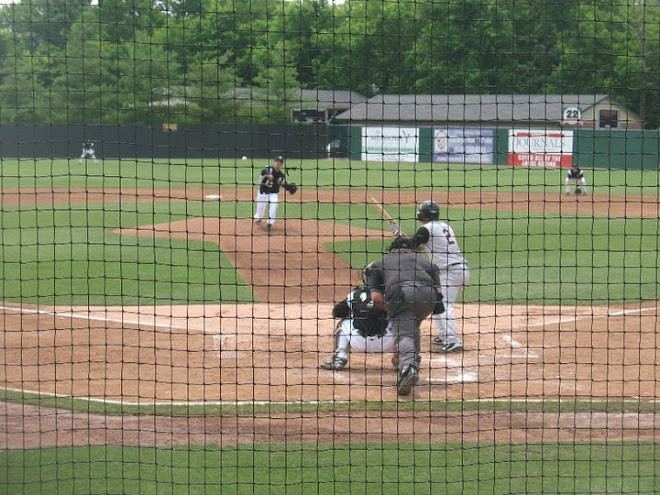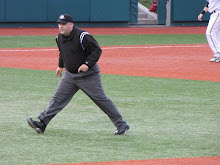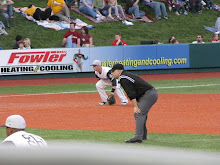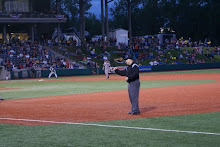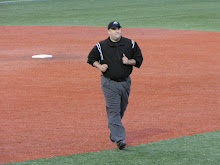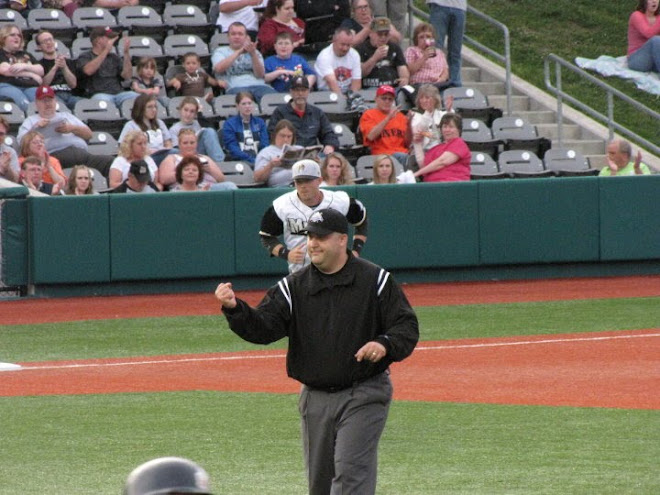It's finally here!!! Tomorrow the baseball season begins for me with two boys 12 games. It should be a fairly easy start to what I am hoping is going to be a very good summer. As the season is about to start, I felt it would be a good time to go through some of my tips to the new (and sometimes not so new) umpires.
#1 - Dress like an umpire: Have you heard the expression "you never get a second chance to make a first impression"? This is true in almost every aspect of life and it holds true to being an umpire as well. Come dressed like an umpire. Make sure your pants and shirt are clean and wrinkle free. Have your shirt tucked in when you get to the field. Wear a black belt. Have you hat on the right way when you get there. If you are behind the plate, have your gear on before you leave for the field. Have a ball bag (I use two but one is fine). Make sure your shoes are clean and polished. Look professional and your well be treated like a professional. Look like a scrub and you will be treated like a scrub.
#2 - Get to your field on time: This ties into #1. Get to your field 15 minutes before first pitch. If it isn't your first game of the day you might not be able to do this because your prior game ran late. In that case get there as quickly as you can. Be ready to go.
#3 - Know the rules of the age group you are working. Know if infield fly is enforced. Know the bat restrictions. Know if there is a run limit per inning. Some umpire take a cheat sheet to the plate, I don't not like this. In my opinion, it shows that you need help to know the rules. Gives a bad impression. Take 5 minutes before the game to memorize them.
#4 - BE LOUD!!! - I can't stress this enough. Good umpires are loud. It's as simple as that. You want to make sure everyone can hear your call. On top of that, being loud gives the perception of confidence.
#5 - TIMING - This is as important, if not more so, as being loud. You need to make sure your timing on your calls is good. Umpires hear the term Pause, Read, React a lot. When you have to make a call (out/safe or ball/strike) you need to see the play or pitch, think the call in your head and then make the call. Don't rush your calls. First thing this will do is it will stop you from saying out and signaling safe. It will also allow you to make sure that ball hasn't been dropped on plays on the bases. Lastly, let's just say you are working behind the plate and on a pitch right down the middle you make a quick call but on the next pitch that is on the corner you use correct timing. In the coaches eyes, they will think you messed up because it took you longer the make the call. PAUSE, READ, REACT!!!
#6 - Consistency - this goes without saying. You need to be consistent. Your strike zone can not change during the game. Sure you are going to miss a call here and there but you want it to be the same the entire game.
#7 Be Polite - This is hard sometimes but essential. Coaches are going to yell, fans are going to yell, players are going to yell. You need to keep your cool. Even when you throw someone out, maintain your composure. Sure there are times you will have to raise your voice but never ever lose your cool. It only causes more problems.
#8 Don't be afraid to ask for help: In baseball, the umpire who made the call doesn't have to seek help unless he wants it and even then he doesn't have to change his call. Don't let pride get in your way. If you have any doubt, as for help. Even if you end of staying with the original call, the coaches will appreciate it.
#9 Angle is more important than Distance: Don't get too on top of plays. Younger umpires always want to get as close to the play as possible when making calls. There is no need for this. Angle is much more important than distance. Get yourself in the right angle to see the play and then make the call.
#10 HUSTLE: Listen, in little league baseball you are usually only going to have two umpires per game. There are going to be times that you are going to be out of position. Weird plays happen and you can't always see them coming. If you are the type of umpire who is doing his best to get in position, you are less likely to hear a lot of yelling than the umpire who walks around the field.
There are more tips that I could give but I think I have rattled on enough for today. For everyone getting ready to start their season, I hope it's a great one!!! PLAY BALL!!!

